Every day, millions of people step into showers seeking a moment of refreshment and cleanliness. It’s a daily ritual that’s as much about health and hygiene. Yet, what if the very water we rely on to cleanse ourselves is not as pure as we believe? The truth is, unfiltered shower water may carry invisible risks that can affect your health and well-being.
While our water systems do an adequate job in treating water to make it safe, they are not flawless. Contaminants such as chlorine, heavy metals, and bacteria can slip through, turning a shower from a cleansing experience into a source of potential harm. These contaminants are not just a drop in the bucket; they can have real consequences on our skin, hair, and overall health.
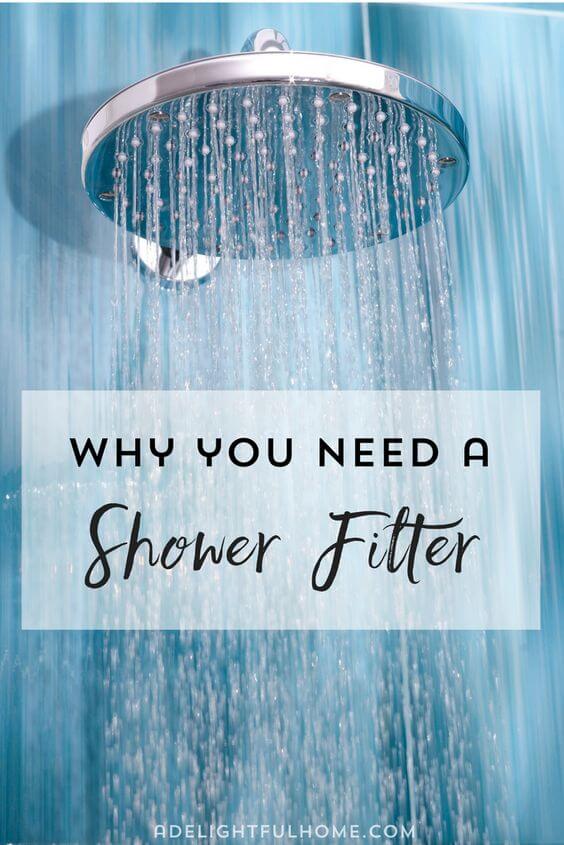
In this article, we delve deep into the reasons why shower water needs to be filtered. We’ll uncover the hidden dangers lurking in the water droplets that we often take for granted. From the chemistry of shower water to the health implications of leaving it unfiltered, we will explore the unseen threats and the powerful benefits of shower filtration.
The Unseen Dangers of Shower Water
When we think of water contaminants, we often consider what we consume, but rarely what we bathe in. Yet, the water that flows from our showerheads can be a cocktail of various contaminants, each with its own set of risks. Here are some of the most common offenders:
- Chlorine: Used to disinfect water, chlorine can strip the skin and hair of their natural oils, leading to dryness, irritation, and in some cases, allergic reactions.
- Heavy Metals: Lead, mercury, and other heavy metals can make their way into water systems through corroded pipes, causing a range of skin issues and potentially contributing to more serious health concerns with long-term exposure.
- Bacteria and Microorganisms: While most are harmless, certain bacteria like Legionella, which thrives in warm water, can pose significant health risks, particularly for the immunocompromised.
- Volatile Organic Compounds (VOCs): These compounds can vaporize in the shower’s heat and be inhaled, potentially leading to respiratory irritation and other health problems.
- Calcium and Magnesium: These minerals cause hard water, which not only affects the skin and hair but also can lead to the buildup of limescale, affecting your plumbing over time.
Each of these contaminants can have a noticeable impact on skin and hair health:
- Skin: Our largest organ, the skin, can suffer from the drying effects of chlorine, leading to flakiness and eczema. Heavy metals can disrupt the skin’s natural balance, causing rashes and acne. Bacteria, on the other hand, can lead to infections or exacerbate existing skin conditions.
- Hair: Chlorinated water can weaken hair strands, leading to breakage and dullness. Hard water minerals can accumulate on the scalp and hair, weighing it down and making it difficult to manage.
Understanding the composition of your shower water is the first step in protecting yourself from these hidden dangers. By doing so, you can take proactive measures to filter out harmful substances and safeguard your health, ensuring that your daily shower is as refreshing and clean as it should be.
Skin and Hair: The First Line of Defense
Our skin and hair are not just aesthetic features; they serve as critical barriers to environmental contaminants. Here’s how they protect us and how unfiltered shower water can compromise these natural defenses:

Skin: The Protective Barrier
- Natural Shield: The skin acts as a physical barrier, protecting our internal organs from pathogens and harmful substances.
- pH Balance: It maintains a slightly acidic pH, which inhibits bacterial growth.
- Sebum Production: Sebum, the skin’s natural oil, creates a protective layer to keep moisture in and contaminants out.
Hair: The Filtration Fibers
- Scalp Protection: Hair shields the scalp from direct exposure to contaminants.
- Trapping Particles: Hair fibers can trap dust, microbes, and other particulate matter, preventing them from reaching the scalp.
The Compromise from Unfiltered Water
- Disruption of pH Balance: Chlorine and other chemicals in unfiltered water can disrupt the skin’s pH balance, weakening its defense against bacteria and infections.
- Stripping Natural Oils: Hot showers can exacerbate the stripping away of sebum, leaving skin dry and hair brittle.
- Deposits on Scalp and Hair: Minerals like calcium and magnesium deposit on the scalp and hair, leading to buildup that can suffocate hair follicles and irritate the scalp.
By understanding the protective roles of our skin and hair, we can see the importance of filtering out the contaminants that compromise these defenses. A shower filter acts much like a shield, ensuring that the water cleansing our bodies is free from harmful substances, thus preserving the integrity of our first line of defense against environmental aggressors.
The Chemistry of Shower Water
Municipal shower water is not just H2O; it’s a complex solution treated with various chemicals and carrying minerals from its environmental journey. Below is a table that breaks down the typical components added during the treatment process, the potential hazards that may arise post-treatment, and the limitations of the treatment process itself.
| Component | Purpose in Water Treatment | Potential Post-Treatment Hazards | Limitations of Treatment |
|---|---|---|---|
| Chlorine/Chloramines | Disinfect pathogens | Can form byproducts like THMs and HAAs | Byproducts are not always fully removed |
| Fluoride | Promotes dental health | Overexposure concerns | Not all health effects are fully understood |
| Calcium & Magnesium | Naturally occurring minerals | Contribute to water hardness | Can cause scale buildup in pipes |
| Disinfection Byproducts (DBPs) | Result from disinfection | THMs and HAAs linked to health risks | Difficult to eliminate completely |
| Lead & Copper | Leached from pipes | Toxicity can lead to health problems | Corrosion control can fail, especially in older systems |
| Bacteria & Microorganisms | Naturally present or regrowth | Can cause disease if not properly controlled | Biofilms in pipes can protect bacteria from disinfectants |
The table highlights the dual nature of water treatment: while it’s essential for making water safe to use, it’s not a guarantee against all potential hazards. The chemistry of shower water is influenced by a variety of factors, including the treatment methods used and the condition of the water distribution system. This complexity is why additional point-of-use filtration can be an important step for ensuring the highest water quality in showers.
Health Implications of Unfiltered Shower Water
The health implications of unfiltered shower water are a growing concern, as various studies have begun to shed light on the long-term effects of exposure to the myriad of contaminants that can be present. Here’s an examination of the potential health risks:
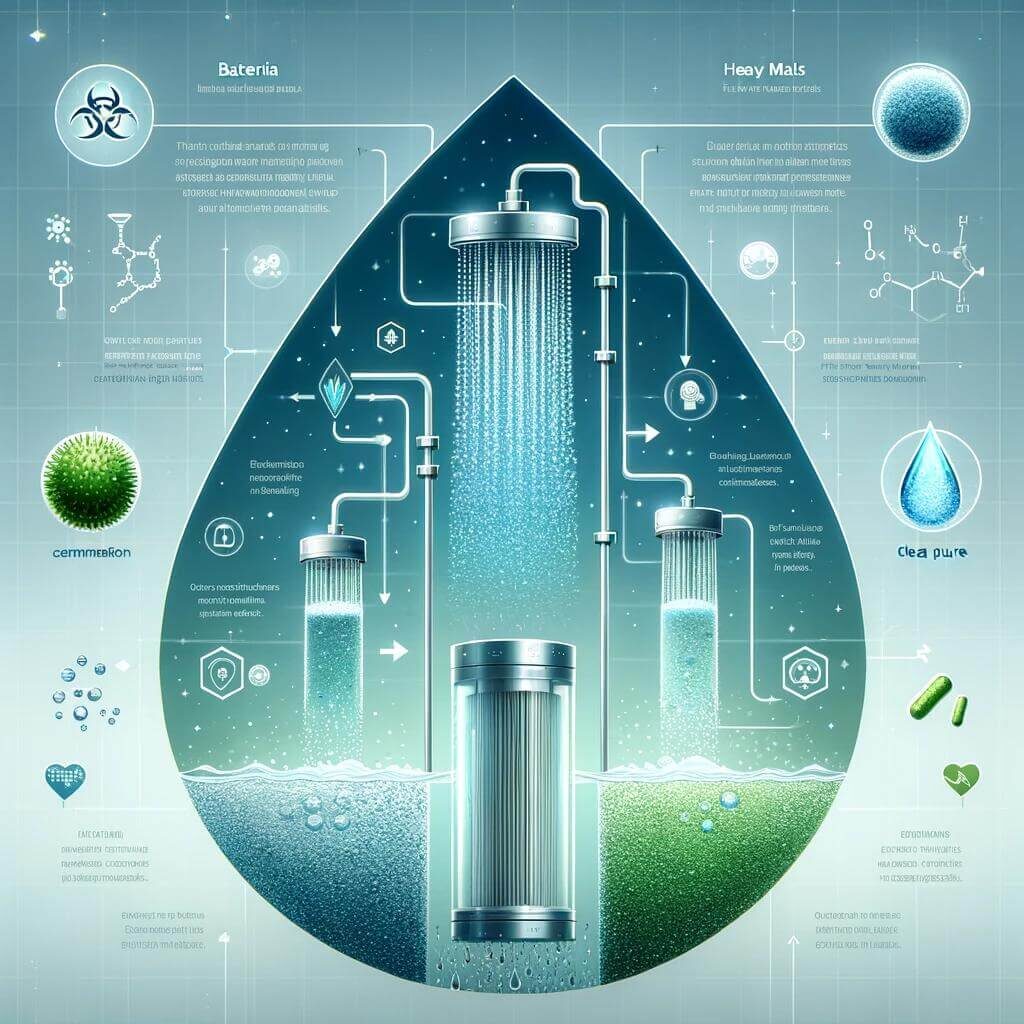
Respiratory Issues
- Inhalation of Chlorine Byproducts: Hot showers can vaporize chlorine and its byproducts, leading to inhalation. Studies have indicated that this can exacerbate asthma and other respiratory conditions. For instance, a study published in the American Journal of Public Health found a link between chlorine byproduct exposure and heightened asthma symptoms.
Skin Conditions
- Dermatological Reactions: Prolonged exposure to heavy metals and chlorine can disrupt the skin’s microbiome and pH balance, potentially leading to conditions like eczema, dermatitis, and accelerated aging. The Journal of Investigative Dermatology has reported on the correlation between hard water and increased incidence of eczema in children.
Hair Health
- Damage to Hair: Hard water minerals can build up on the scalp and hair, leading to dryness, breakage, and a dull appearance. A study in the International Journal of Trichology observed that hard water usage negatively impacts hair tensile strength and luster.
Reproductive and Developmental Health
- Endocrine Disruptors: Certain organic compounds, when present in shower water, can act as endocrine disruptors. Research, including findings from the Endocrine Society, suggests that these contaminants can potentially affect reproductive health and development.
Cancer Risk
- Carcinogenic Contaminants: The presence of certain byproducts like THMs has been studied for their carcinogenic potential. The International Journal of Environmental Research and Public Health has published findings that suggest a possible association between long-term exposure to THMs and an increased risk of bladder cancer.
Microbial Infections
- Bacterial Exposure: While most bacteria in water are harmless, pathogenic bacteria like Legionella can be a concern, especially in showers where they can be aerosolized and inhaled. The Centers for Disease Control and Prevention (CDC) has issued guidelines on minimizing exposure to Legionella in water systems.
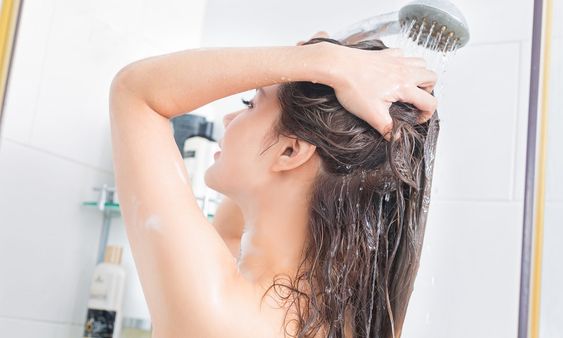
The cumulative effect of these contaminants can pose significant health risks, particularly when exposure is daily and long-term. This underscores the importance of not just relying on municipal water treatment but also considering point-of-use filtration to minimize these risks. Ensuring that shower water is as clean as possible is not just about immediate health effects but also about protecting against potential long-term consequences.
The Benefits of Shower Water Filtration: A Clear Solution
The installation of a shower filter can be a simple yet transformative step for both immediate and long-term health benefits. Here’s an exploration of the advantages that come with filtering your shower water:
Immediate Benefits for Skin and Hair Health
- Enhanced Moisture Retention: By removing chlorine and heavy metals, shower filters help in maintaining the natural moisture of the skin and hair, leading to a more supple and vibrant appearance.
- Reduced Chlorine Exposure: Filters that reduce chlorine levels can alleviate skin irritation and dryness, making them particularly beneficial for individuals with sensitive skin or conditions like eczema.
Long-Term Health Benefits
- Decreased Health Risks: The reduction of harmful contaminants like VOCs and certain byproducts may lower the risk of long-term health issues, including certain types of cancers and reproductive health problems.
- Improved Respiratory Health: By filtering out chlorine and its byproducts, there’s less risk of these substances turning into vapors that can be inhaled, potentially reducing the incidence of respiratory issues over time.
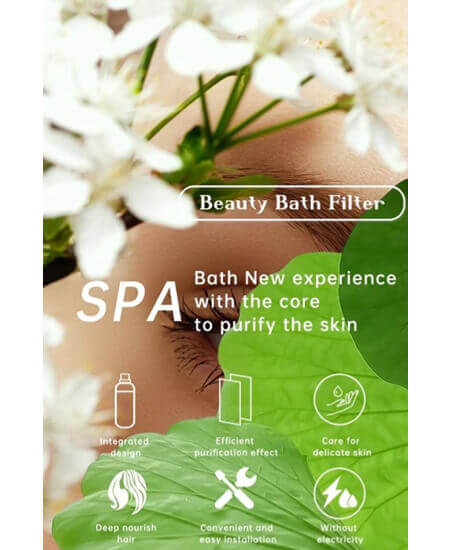
Protection Against Hard Water
- Prevention of Scale Buildup: Shower filters can mitigate the effects of hard water by capturing minerals before they deposit on surfaces, thus preventing scale buildup and extending the life of shower fixtures.
- Softer Water for Better Cleansing: Softened water can lather more effectively with soaps and shampoos, resulting in a more efficient and enjoyable shower experience.
The Cumulative Effect
- Overall Well-being: Regular use of a shower filter contributes to the overall well-being by providing a more healthful and pleasant showering environment.
- Cost-Effectiveness: Investing in a shower filter can also be cost-effective in the long run by reducing the need for expensive skin and hair care products to counteract the effects of unfiltered water.
The benefits of shower water filtration are clear and compelling. By providing a barrier against a range of contaminants, shower filters not only improve the quality of the water but also contribute to the health and maintenance of our body’s largest organ, the skin, and our hair, which is often a reflection of our overall health.
Types of Shower Filters and Their Effectiveness
When it comes to choosing a shower filter, understanding the different types and their effectiveness against various contaminants is key. Here’s a comparison of the most common shower filters:
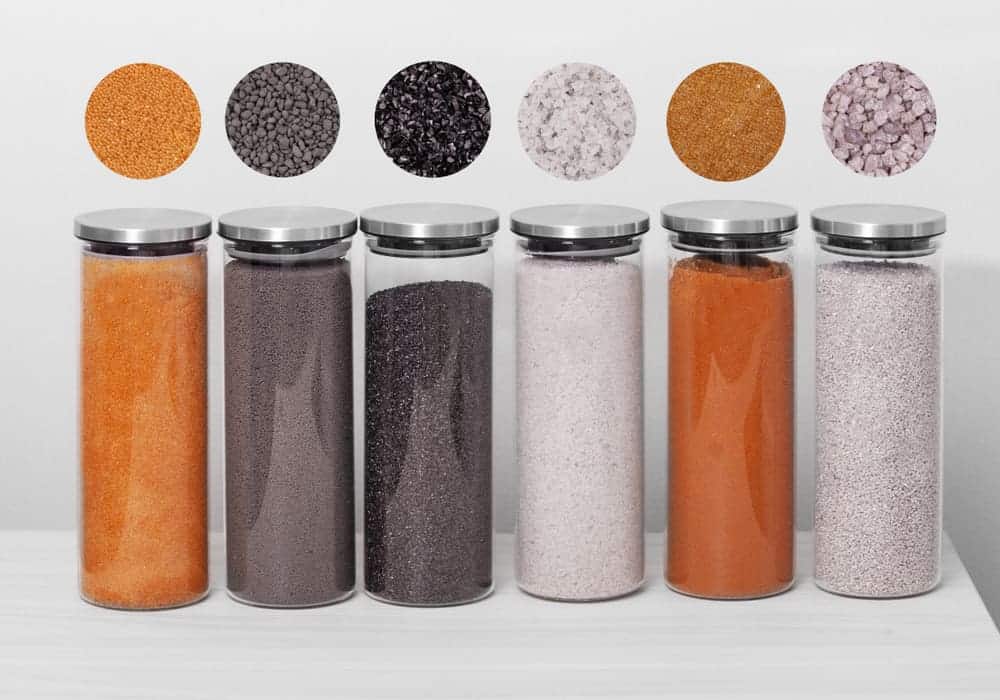
Carbon Filters
- Contaminants Targeted: Effective at removing chlorine, VOCs, and certain pesticides.
- Limitations: Less effective in high-temperature water, which is typical for showers, and may not filter out minerals and salts.
- Best For: Those living in areas with lower water temperatures and concerns mainly about chlorine and organic chemicals.
KDF (Kinetic Degradation Fluxion) Filters
- Contaminants Targeted: Highly effective at removing chlorine, heavy metals, and some bacteria.
- Advantages: Works well in hot water, making it suitable for showers, and has a longer lifespan than carbon filters.
- Best For: Households with hot showers and a need to reduce heavy metals and chlorine.
Vitamin C Filters
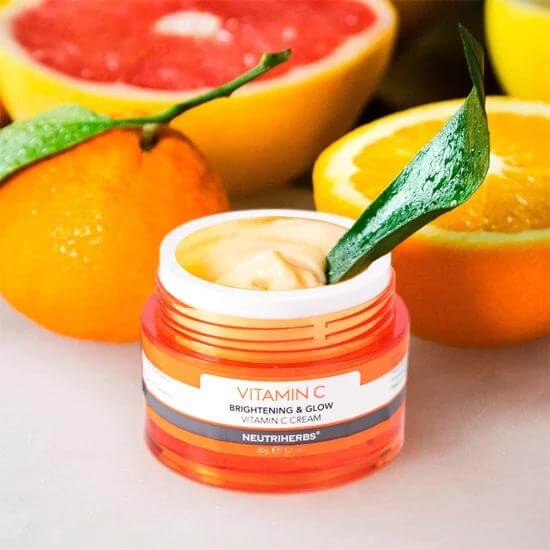
- Contaminants Targeted: Neutralizes chlorine and chloramines effectively.
- Benefits: Can improve skin and hair condition by neutralizing the chlorine that would otherwise strip away natural oils.
- Best For: Those with sensitive skin or respiratory issues aggravated by chlorine.
Multi-Stage Filters
- Contaminants Targeted: Combine various filtering media, such as KDF, carbon, and sometimes vitamin C, to target a broad range of contaminants.
- Effectiveness: Offers comprehensive protection by reducing chlorine, heavy metals, bacteria, and some scale.
- Best For: Users seeking a broad-spectrum solution and are dealing with multiple water quality issues.
Guidance on Selection
To select the right type of filter, consider the following steps:
- Test Your Water: Understand the specific contaminants in your water supply. Water testing kits are widely available for this purpose.
- Identify Your Needs: Determine if you have any skin or respiratory conditions that could be exacerbated by certain contaminants.
- Consider Shower Habits: Take into account the temperature of your showers and the flow rate, as some filters are less effective with hot water or high pressure.
- Budget and Maintenance: Factor in the initial cost of the filter and ongoing maintenance, such as the frequency and cost of replacement cartridges.
By carefully assessing your specific water quality and personal needs, you can choose a shower filter that will provide the most effective protection and benefits for your situation.
Installation and Maintenance of Shower Filters: Ensuring Peak Performance
Proper installation and maintenance are crucial for the effectiveness of shower filters. Here’s a guide to help ensure that your shower filter operates at its best:

Installation Guide
- Step 1: Choose the Right Filter: Select a filter that fits your shower type—whether it’s for a handheld, wall-mounted, or rain shower head.
- Step 2: Remove the Shower Head: Unscrew the existing shower head from the shower arm. You may need pliers, but be sure to wrap the shower arm with a cloth to prevent scratching.
- Step 3: Clean the Threads: Wipe down the threads on the shower arm to remove any old tape or residue.
- Step 4: Apply Teflon Tape: Wrap Teflon tape around the threads to ensure a watertight seal.
- Step 5: Install the Filter: Screw the shower filter onto the shower arm and then attach the shower head to the filter. Hand-tighten to avoid damage.
Maintenance Tips
- Regular Filter Replacement: Follow the manufacturer’s guidelines on when to replace the filter cartridge. This is typically every 6 months or after a certain number of gallons filtered, but it can vary based on water quality and usage.
- Visual Inspection: Look for signs of sediment buildup or discoloration that might indicate a need for a replacement sooner than scheduled.
- Performance Monitoring: Pay attention to changes in water pressure or any odors, which can signal a clogged or ineffective filter.
- Record Keeping: Keep a log of installation and replacement dates, as well as any maintenance actions taken.
The Importance of Regular Changes and Monitoring
- Optimal Performance: Regularly changing the filter ensures that it continues to remove contaminants effectively.
- Prevent Bacterial Growth: Old filters can become breeding grounds for bacteria if not replaced in time.
- Cost Efficiency: Maintaining your filter can prevent more costly repairs or replacements of the entire shower system due to scale buildup or corrosion.
By adhering to these installation and maintenance guidelines, you can extend the life of your shower filter and ensure that it provides the highest quality of water for your daily use. Regular monitoring and timely maintenance are small but critical steps that can make a significant difference in the performance of your shower filtration system.
Conclusion
The importance of filtering shower water cannot be overstated. It’s a critical step not only for personal health and well-being but also for the longevity and efficiency of plumbing systems. For businesses, especially those in the water purification industry, the widespread need for shower filtration presents a significant opportunity. Every household values health, and as awareness grows, so does the potential for businesses to meet this demand.
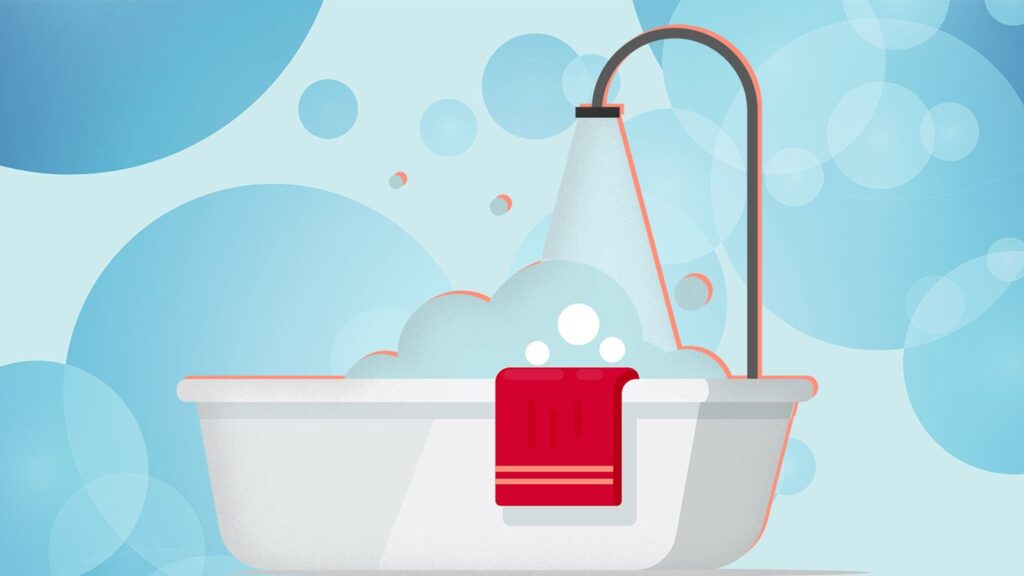
As we conclude, we encourage you to not overlook the safety of your shower water. It’s easy to forget about the water we don’t drink, but the water we bathe in can affect our health just as profoundly. For business owners, this is a call to action to provide solutions that ensure every drop of water at every point of use is clean and safe.
